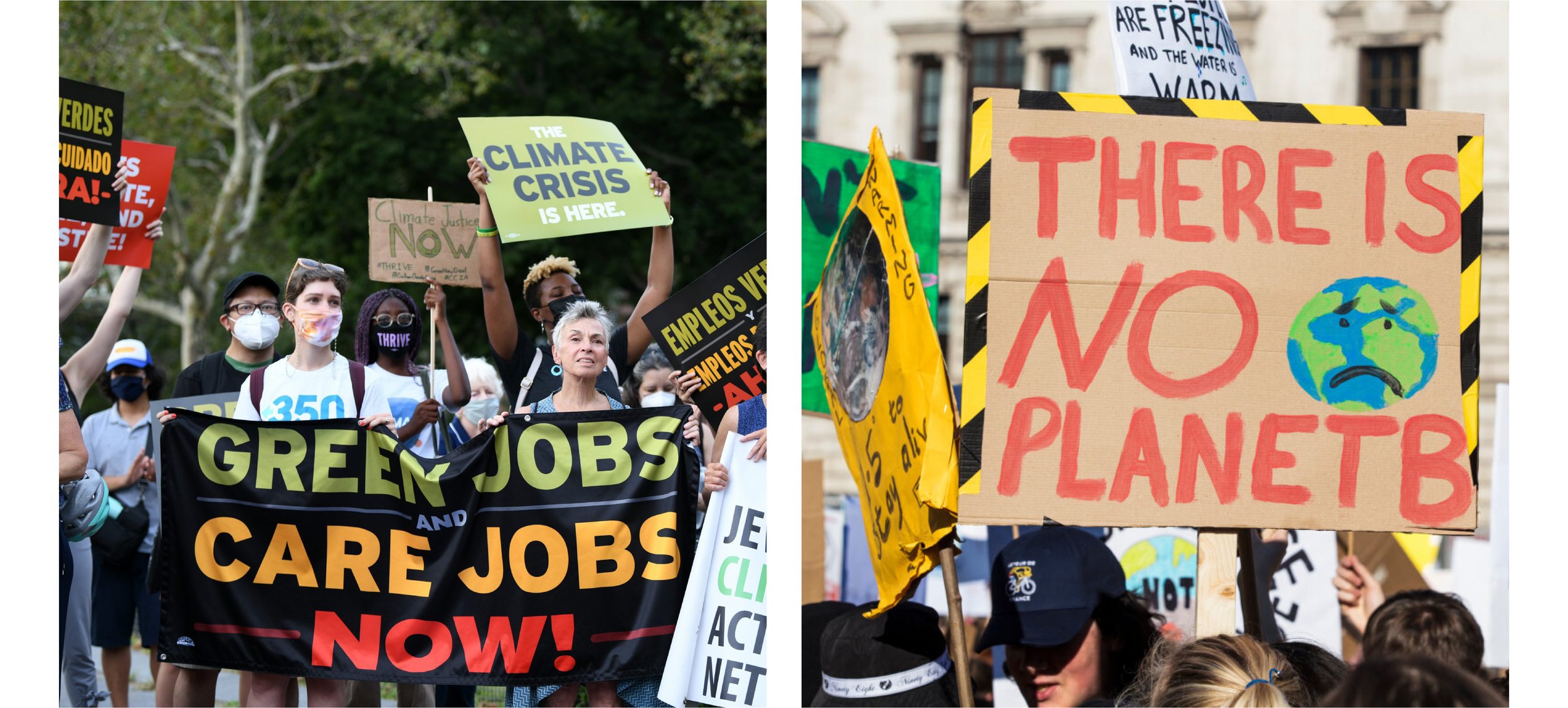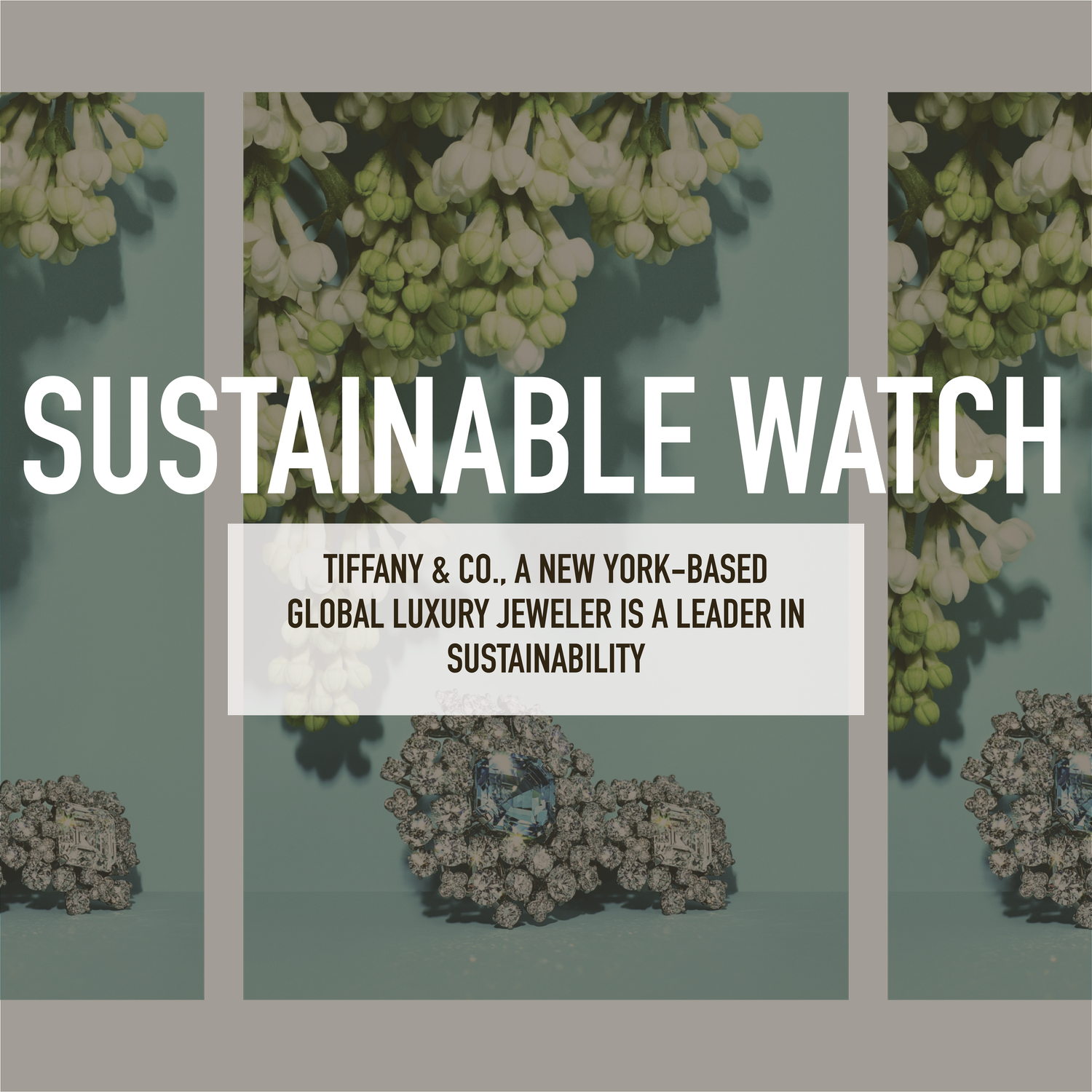Climate Week NYC: From Eco Anxiety to Eco Optimism: Listening to a Generation of Resilient Youth
Climate Week New York City is one of the largest annual climate events, bringing together influential sustainability leaders, political change makers, and civil society representatives of all backgrounds, from across the globe. Climate Week New York City is hosted by Climate Group, an international non-profit organization that aims to drive climate action. This year the events and activities were held from September 17-24 and took place in partnership with the United Nations General Assembly.
On Monday, September 18 of Climate Week New York City Jay Lipman, president and co-founder of the Ethic organization, spoke with a panel of peers, including Aria Mia Loberti, Gautam Narasimhan, and Kripa Kannan, on the eco-anxiety being experienced by young people around the world.
The younger generation experiences the impacts of climate change every day, and as a result a fear of environmental doom is common among them. While facing their own eco-anxiety, young people are also tasked with finding solutions to save our future. A new global survey from UNICEF on eco-anxiety found that people tend to focus on the fear that young people have around climate change, rather than the stories of optimism and action that reflect how they want to tackle it. “The survey found that instead of despair, this generation is making a choice to be optimistic, realistic, and resilient.” In this Climate Week New York City session, the panel discussed their views on our ever-changing environment, what is needed from our leaders, where people can find green jobs, and how to turn the optimism of our youth into real climate action.
Tell us, what is one thing about the survey or eco-optimism at large that resonates or feels most meaningful to you.
(Aria Mia Loberti, Actress, UNICEF USA Supporter). The biggest thing that I noticed is the gap, which is huge. I’ve spent my entire life as an advocate, mostly for educational equality, and I’ve realized that most young people do not have the confidence to speak up, and I think that is where the gap comes from. So often we are told to sit down and shut up because we are not experts yet. What I think is so different about climate activism, is we see world leaders speaking and really listening to young people in a way that is not performative. So often advocacy and activism can take on a performative stance, but there is such an opportunity here for us to create real change. I think in order to involve young people, bridge the gap, and make them feel more confident to speak out in their community, we have to make sure they have the tools at their disposal to do that. That includes confidence, literacy, media literacy, and the presence and ability to feel like they matter. I know so often they feel that they don’t matter and that’s a really important step for us all to take, to give young people the tools they need to speak up and tell them that they can contribute to this conversation.
Looking at the survey, there is a singular priority for this next generation to find green jobs, build skills, and participate in the solutions. What are some of the ways UNICEF is contributing to this and other climate solutions?
(Gautam Narasimhan, Global Lead for Climate Change, Energy, and the Environment, UNICEF). The way that we approach our work at UNICEF is with understanding that climate change isn’t a far-away problem, it is here and now. That children bear the brunt of the impact, and these children often live in countries and communities that haven’t done things to cause the problem. UNICEF’s work has always been about how to promote the essential tools that a child needs to survive and thrive. We know that children need good nutrition, education, healthcare, water, and increasingly we know that these services and systems are unable to be delivered in the face of climate change. So, a lot of our work is ensuring that health systems, communities, and workers can work on the way new diseases are evolving as a result of climate change. A big part of what we also work on, is what can we as UNICEF do to support young people. There are three elements that link together, the first is our work with education systems, as we think it is critically important that young people learn what is happening to their planet. Secondly, it is critical that they learn what can be done to protect themselves and their communities in terms of disaster risk reduction. As the third element, we are lucky at UNICEF to have access to pathways of decision making. Whether it is at a global or national level, we see ourselves as having a key role in having young people be at the table when decisions are being made. It is decisions that are for them, and it has to be with them.
After the panel discussion, Alexandra van der Ploeg and UNICEF USA CEO, Michael Nyenhuis finished the session with a discussion on how institutions and the business community can support young people taking climate action. Nyenhuis noted that when the youth speak and advocate, they often focus on policy makers and also sometimes focus their voice on the corporate sector. As in reality, the corporate sector across the globe “may have more influence on climate change and opportunities for youth, than governments do.” It is agreed that as one of the sectors “causing a lot of the problems,” the business community must also be involved in transforming and solving these problems. Demonstrated by van der Ploeg’s work at Corporate Social Responsibility (SAP), the pair suggest that the needs of a successful business can connect with the “social good that has to happen.”
To hear the full discussion, you can view the livestream from the Climate Week NYC website:
Article + Tearsheets by Mia Fyson, Contributor & Graphic Design Intern, PhotoBook Magazine








